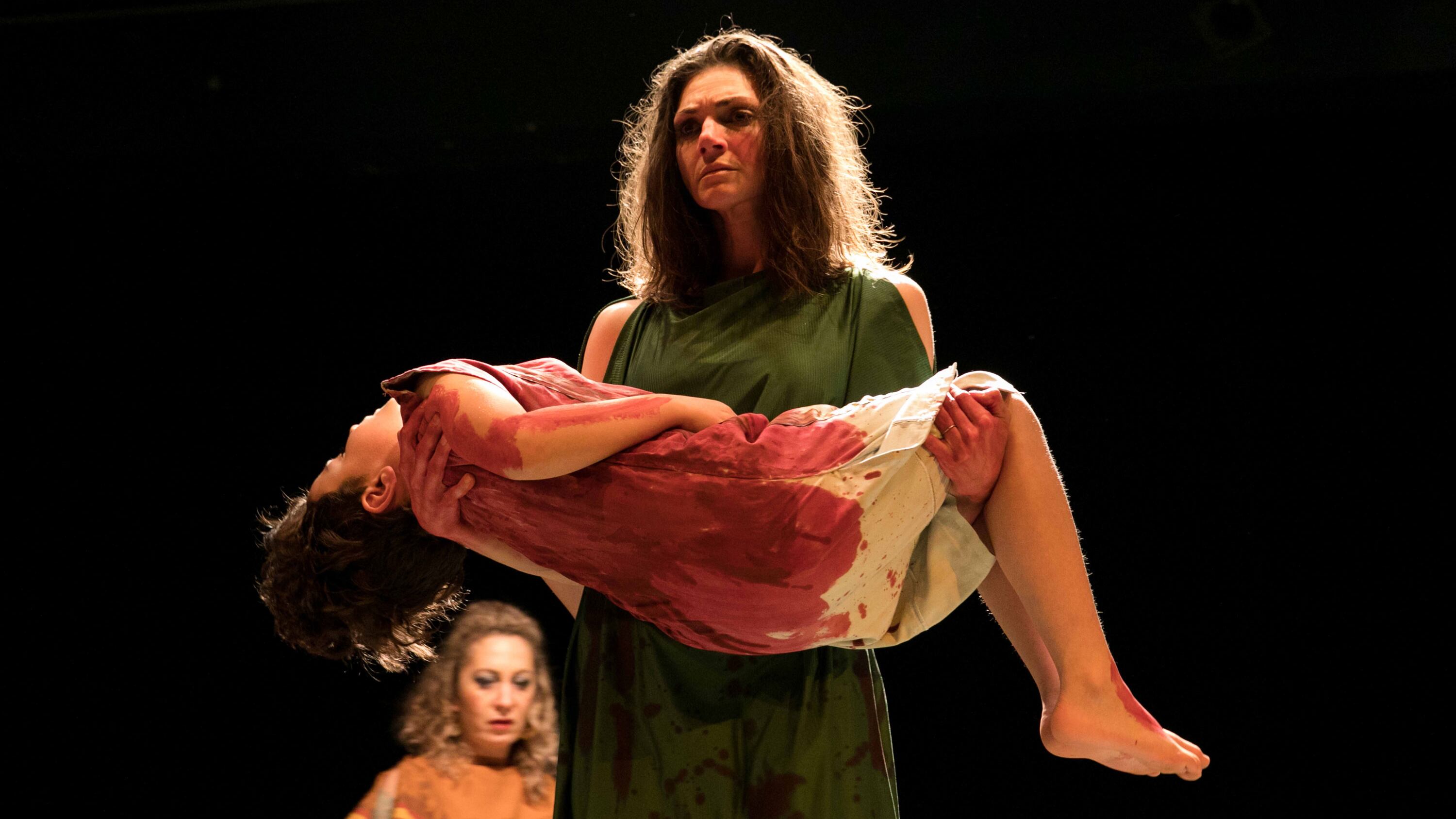By the time Imago's production of Medea reaches its gruesome end, the audience has endured a torrent of horrors: a misogynistic husband casting aside his wife and children as if they were broken spears; a man describing in graphic detail a woman's flesh being torn away by poison; and, worst of all, the bodies of two young boys carried onstage, drenched in their own blood.
It seems callous, even monstrous, to dub all of that "entertainment." Yet that's the only word that fits. Working from playwright Ben Powers' 2014 version of Euripides' Greek tragedy, director Jerry Mouawad has unleashed something bloodthirsty. But he has also created an intoxicating fusion of intense performances and minimalist staging that honors Powers' intention to go beyond some of Medea's more fanciful flourishes.
The play centers on the divorce of the ferocious Medea (Anne Sorce) and her sniveling husband, Jason (Todd Van Voris), who plans to marry the daughter of Kreon, the king of Corinth (Sean Doran). It doesn't matter to Jason that he and Medea have two children—he leaves them to be exiled by Kreon. So Medea zealously plots her revenge: the slaughter of her children (Duncan Creagle Doran and Anthony Feely) and Jason's new bride.
In Euripides' version of Medea, the bloody plot includes a scene featuring "a chariot drawn by dragons." But Mouawad keeps his Medea simple. There is no furniture, there's barely any props. The only set used is Imago's tilting stage, which wobbles as the actors move across it, evoking the shifting balance of power between Medea and Jason.
Minimalism suits Sorce just fine—if the production had used a more elaborate set, her roars of anguish would have shredded it. Even at her most unhinged, she makes sure you never doubt Medea's power or the logic behind her self-immolating revenge. In her deep, throaty voice, she sells Medea's defining belief: that Jason is not only a treacherous spouse, but a cog in a misogynist machine.
To Medea, men like Jason are both oppressive and weak, a point she mockingly underscores by declaring the horrors endured by men at war can't compare with the agony of childbirth. The pressure to bow before those she believes to be feeble enrages her, and is part of what drives her to upend the status quo in the grisliest manner she can imagine.
It's not until the end that Mouawad uncorks the fake blood. Yet his stripped-down vision makes every moment of the play feel emotionally violent. In one haunting scene, the lights dim around Medea, allowing her face to shine in the darkness. You feel as if there's no one but you and her in the theater. It's so intimate you feel you're in Medea's skin, tormented by Jason and longing to see him on his knees.
Feeling a kinship with Medea is a disturbing experience. Yet Sorce's unbound charisma makes it strangely exciting to feel so close to a woman whose wrath ultimately makes her a being of pure instinct, stripped of self-doubt and self-hatred. It's what makes Medea evil, but it's also makes her mesmerizing.
SEE IT: Medea plays at Imago Theatre, 17 SE 8th Ave., imagotheatre.com. 7:30 pm Thursday-Saturday, through May 20. $19-$39.
